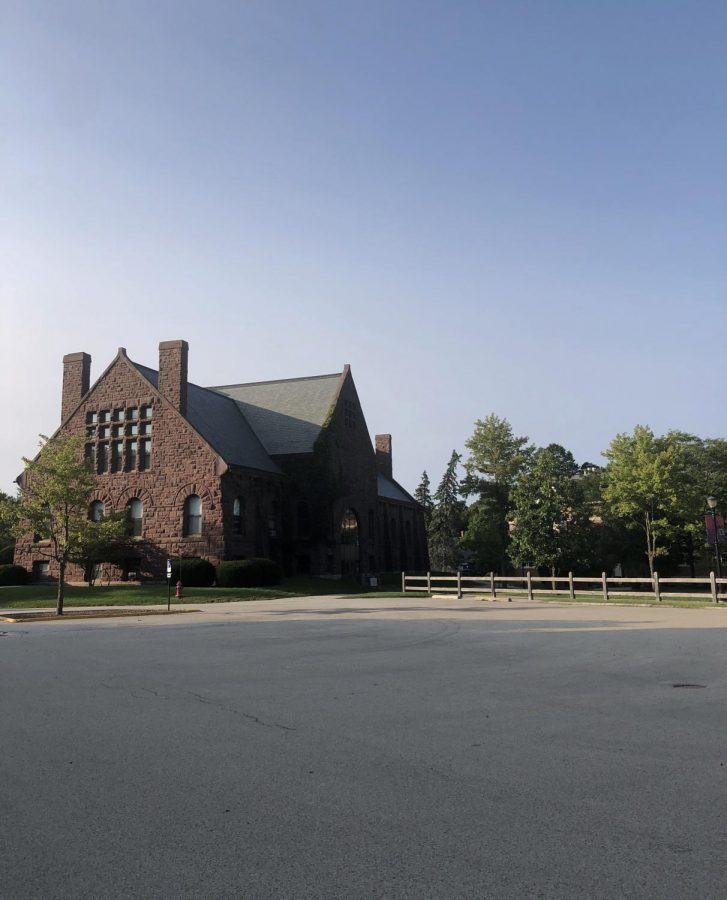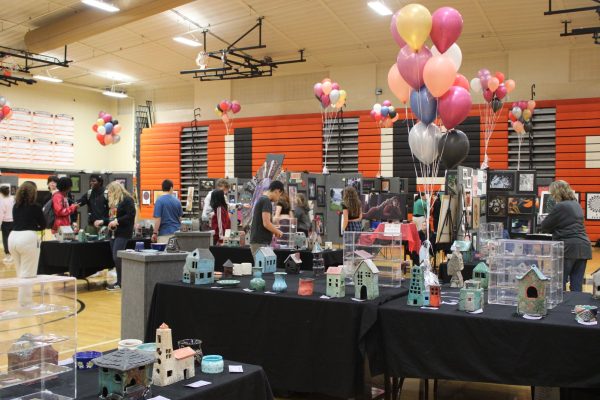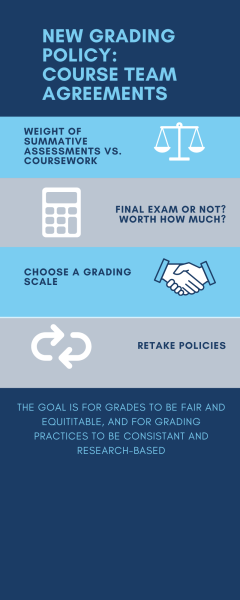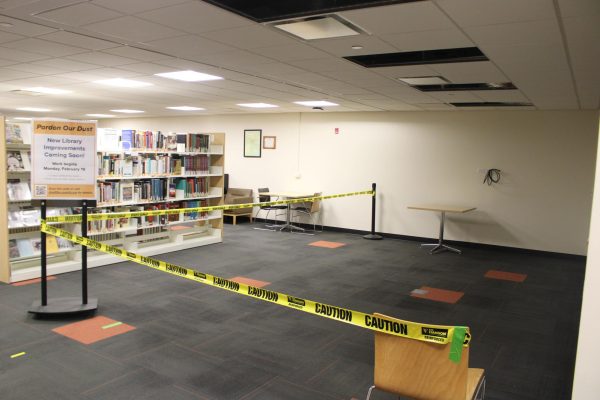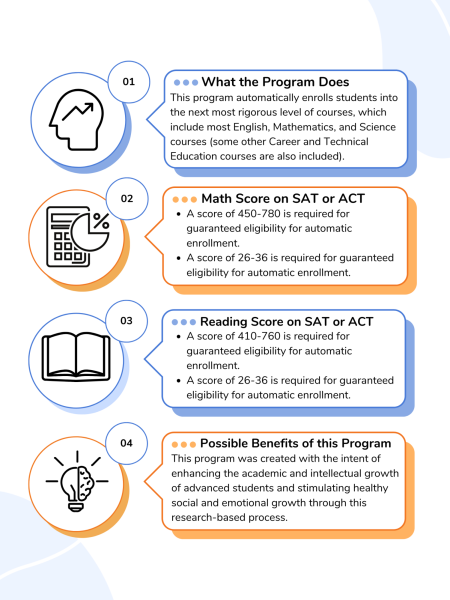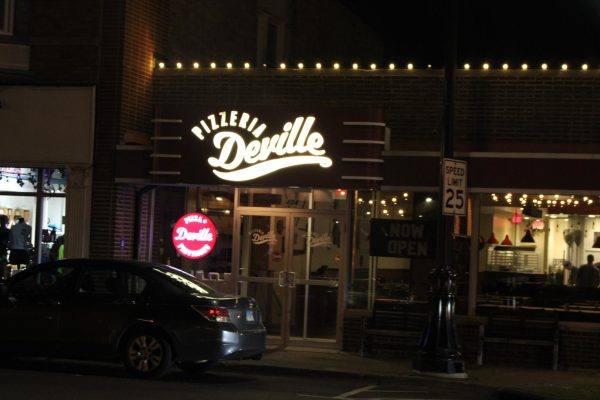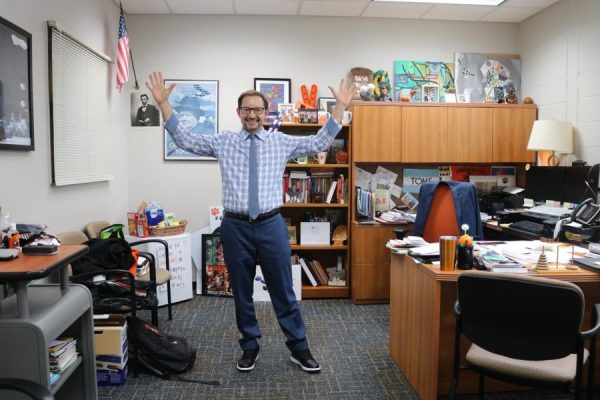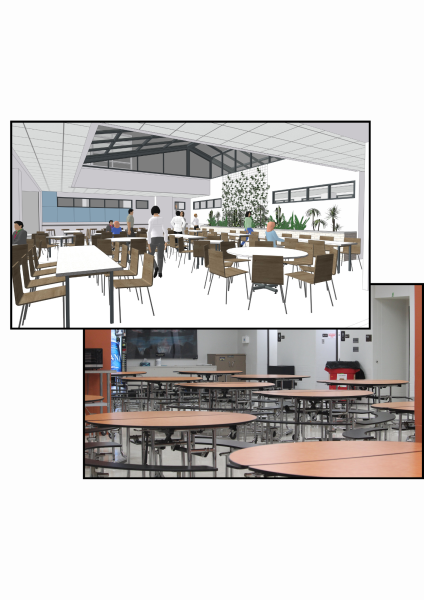How COVID-19 is affecting colleges
Many Lake Forest College students are taking online classes this year from home, leaving the college mostly empty and this parking lot at the school vacant. Only students with exceptions to live on campus are allowed access to specified buildings and outdoor areas.
As colleges across the country have started to open this fall, many are learning how effective — or not — their plans have been in preventing COVID-19 outbreaks on campus. From fully reopening to e-learning, there have been various methods schools have used to teach students.
Locally, the College of Lake County (CLC) has allowed its students to learn on campus but prevents any visitors from spending time there. Students also have the option to learn online. Mask wearing is required in the halls, along with physical distancing, whenever possible. So far, CLC has had zero COVID-19 cases, according to their website.
Lake Forest College has allowed students to live in the dormitories on campus, but all classes are being taught online.
On the other hand, the University of Illinois at Urbana-Champaign has seen a drastic rise in COVID-19 cases, with 1,760 out of about 46,000 students infected, according to The New York Times.
The school reopened based on a model developed by two physicists, Dr. Nigel Goldenfield and Dr. Sergei Maslov. The system included regularly testing students two times a week. When creating the model, they took into account students who would be partying, but many more students regularly went to parties than they expected. According to Dr. Goldenfield, some students continued to go to parties even after testing positive for COVID-19.
Classes at University of Illinois at Urbana-Champaign have been divided between online and in-person.
“I feel like the professors and teachers are just so much more understanding, and they know that, at least for me, [online school] is not normal. What we’re doing is different, so we have to deal with it and go on as we do. I think that’s been pretty good, in the sense of online learning,” said Sunethra Kannan in an interview over the phone. Kannan, who graduated from LHS in the spring, attends the University of Illinois at Urbana-Champaign, and has all of her classes online.
Iowa State University has high COVID-19 numbers, in relation to other schools. As of Sep. 14, according to the university’s webpage, they had 1,616 positive cases out of 36,321 students. This fall, they opened up completely in-person, while requiring face coverings to be worn by all, and they do not appear to have any plans to change this plan.
Another school dealing with a disproportionately large number of cases is the University of Alabama. According to The New York Times, they reported 2,225 cases as of Sep. 15. Like UIUC, they have also had more students than they expected out partying, and they sanctioned 639 students for breaking COVID-19 health guidelines.
The University of Massachusetts-Amherst has been doing well, despite the fact that they fully reopened. As of Sep. 14, they have only reported three cases of COVID-19. They have been strictly enforcing social distancing guidelines, which appear to have worked.
Other colleges, including the University of Vermont, have been doing well. Of the 42,000 tests that have been conducted for COVID-19, only 38 have come back positive, according to NBC News. The university credits their low numbers to a mandatory quarantine for out-of-state students, accessible testing and reliable contact tracing.
Because of the pandemic, parts of the college application process have become uncertain for students still in high school, with there being differences between this year and other years.
Some colleges have begun to be test-optional for class of 2021 applicants, meaning that standardized test scores are not required as a part of the application process; schools doing this include Harvard University, the University of Illinois at Chicago, and Duke University. Others have decided to become test-optional indefinitely, like Dartmouth College, Illinois State University and more. This has been an “important” change to the application process, according to Amy Belstra, Libertyville High School’s postsecondary counselor.
Ms. Belstra offered this advice to current seniors: “Try to keep options available to you that meet every possibility. So in other words, if there is a vaccine, we can start to move forward, if colleges are going to be in person for next year, and have those colleges ready . . . but also prepare for the what ifs? Have options on your list that will help you out, should [other options] be the case. I think seniors really need to examine what they want to get out of [college] if it looks different.”



